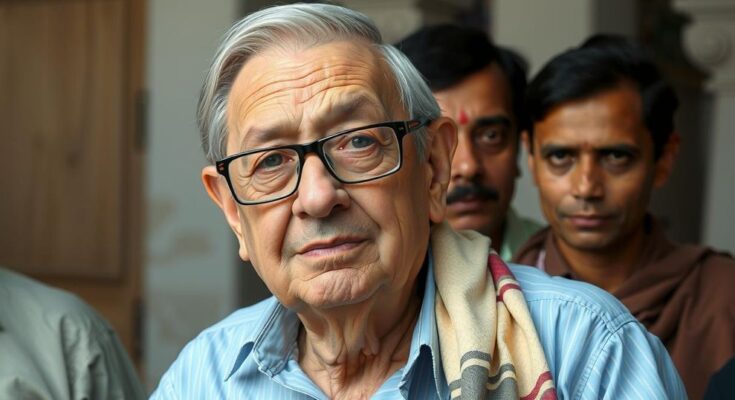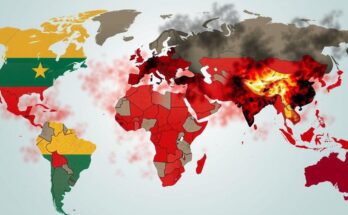George Soros, renowned American financier, received the Medal of Freedom but remains a controversial figure in India due to his criticism of PM Modi and alleged support for an independent Kashmir. Political backlash from Indian officials, particularly the BJP, highlights concerns of foreign influence and national integrity, intertwining Soros with broader debates on democracy and sovereignty.
George Soros, a prominent American financier and philanthropist, has emerged as a contentious figure in India, drawing the ire of government officials such as External Affairs Minister S. Jaishankar, who referred to him as “old, rich and dangerous.” Soros recently received the Medal of Freedom, the highest civilian honor in the United States, jointly with 18 other recipients from President Joe Biden, which sparked fierce backlash, particularly among supporters of former President Donald Trump.
In addition to his controversial reputation in the United States, Soros has been scrutinized in India for his critiques of Prime Minister Narendra Modi and accusations of funding initiatives supporting an independent Kashmir through his organization, the Open Society Foundation. During the Munich Security Conference in February 2023, Soros claimed that Modi’s partnership with business tycoon Gautam Adani could threaten the Prime Minister’s power, thereby intensifying the scrutiny on Soros’ influence in Indian politics.
Moreover, the Indian government has accused Soros of undermining India’s democratic structures. Smriti Irani, the Union Minister for Women and Child Development, expressed concerns regarding Soros’ intentions, alleging that he aims to harm India while pursuing his own interests. The Bharatiya Janata Party (BJP) continues to leverage accusations against the opposition Congress party, linking Sonia Gandhi to Soros and alleging a relationship that threatens national security, particularly regarding Kashmir’s sovereignty.
The BJP has intensified its attacks by asserting that Congress is in collusion with Soros, questioning whether he financed Congress leader Rahul Gandhi’s Bharat Jodo Yatra or other initiatives. The party’s social media campaigns have also targeted Congress, replacing images of prominent leaders with Soros’ likeness. In response, Congress leaders have condemned these tactics as disrespectful and an affront to national icons.
Overall, Soros stands at the center of a complex web of political narratives in India, characterized by fierce opposition and allegations that intertwine issues of foreign influence, national pride, and domestic politics.
The article discusses the complexities surrounding George Soros, especially his recent recognition in the United States and his contentious reputation in India. As a financier and philanthropist, Soros’s engagement in Indian politics—critically engaging with the Modi government and being linked to debates surrounding Kashmir—has made him a focal point of political discourse. Allegations against him have become a tool for various political entities, notably the BJP, to criticize the opposition, reflecting broader themes of nationalism and foreign intervention in domestic affairs.
In summary, George Soros’s prominence as a recipient of the Medal of Freedom has intensified existing controversies regarding his influence in India. The backlash from Indian officials reflects broader concerns over foreign interference in national politics, particularly in connection with Prime Minister Modi and the opposition. As political narratives unfold, Soros remains a polarizing figure, illustrating the intersection of economics, philanthropy, and complex political dynamics in India.
Original Source: www.hindustantimes.com




